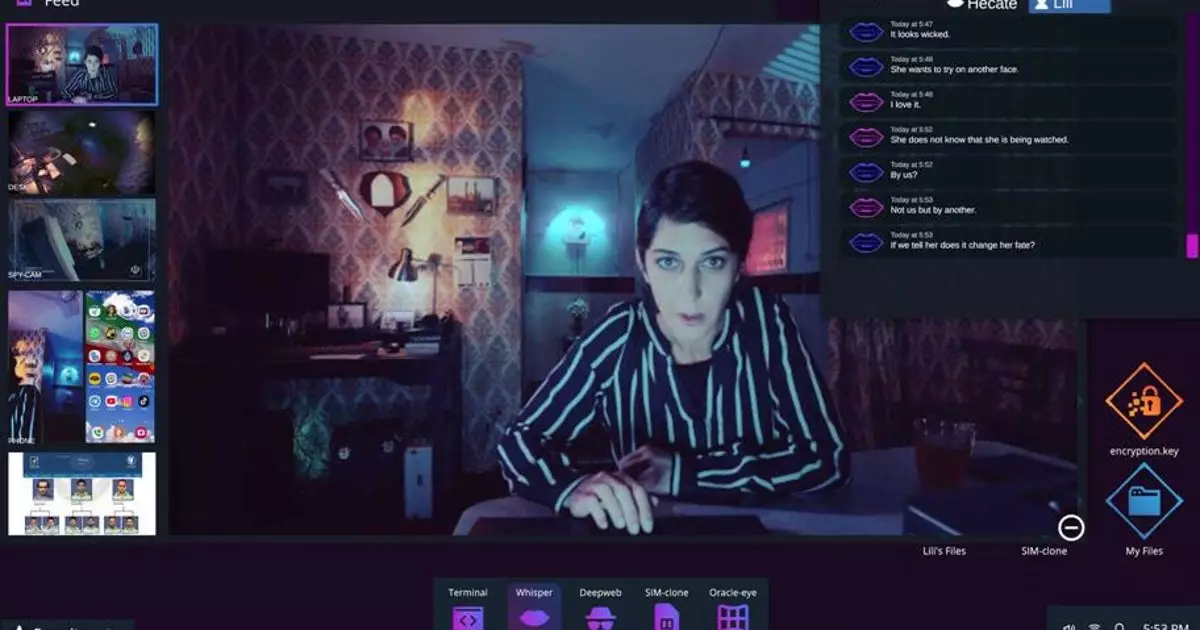In an unexpected fusion of classical literature and modern technology, the Royal Shakespeare Company (RSC) is stepping beyond the boundaries of traditional theatre. Their latest project, a playable adaptation of Macbeth that centers on a digital exploration of Lady Macbeth’s life, illustrates a significant evolution in how we engage with theatrical narratives. This partnership with a game development studio marks a bold acknowledgment that video games are not just a niche entertainment medium but an innovative storytelling platform that draws in new audiences and offers fresh perspectives on age-old stories.
The project, titled “Lili,” takes a contemporary spin on Shakespeare’s tragic characters by setting the narrative within modern Iran. By stylistically intertwining the themes of surveillance and authoritarianism with the haunting atmosphere of Macbeth, the game invites players to delve into a world where technology and classic drama unite. This approach not only revitalizes the original tale but also poses pertinent questions about power, control, and personal autonomy—issues that resonate profoundly in today’s global context.
Reinterpreting Iconic Characters through Modern Lenses
One of the game’s most intriguing features is its innovative portrayal of the witches, reimagined as hackers. This transformation, while a notable departure from the traditional rendering of the characters, effectively mirrors the broader implications of technological intrusion in our lives. It reinforces the idea that the supernatural elements of Shakespeare’s plays can manifest in contemporary forms that reflect modern fears about privacy and digital surveillance.
The narrative setup allows players to step into the role of an investigator, piecing together the story through the lens of everyday technology. By drawing parallels to existing interactive narratives, such as Sam Barlow’s acclaimed works, “Lili” promises a rich tapestry of storytelling that is character-driven and choice-centric. The gameplay will incorporate live-action cinematic elements, enriching the player’s experience while maintaining a connection to the original text.
Central to this reimagining is Zar Amir, an acclaimed actress who brings her own lived experiences as an Iranian woman in exile to the game. Her portrayal as the investigative journalist offers a compelling bridge between the historical weight of Macbeth and the pressing social issues surrounding gendered oppression today. Amir’s involvement emphasizes the importance of authentic representation in the games industry, allowing the narrative to resonate on a deeper level with players familiar with the struggles of authoritarianism.
As players navigate the intricacies of Lady Macbeth’s character, they will also be invited to confront the realities of authoritarian governance and its impact on personal freedoms and societal roles. This interplay between an ancient story and contemporary themes exemplifies how classic literature can be adapted to reflect modern challenges, creating a narrative space where dialogue around power dynamics and gender rights can flourish.
“Lili” stands out not only for its content but also for its form. It is an ambitious endeavor that marries interactive gameplay with a beloved Shakespearian theme, and while there are predecessors in the realm of snooping games, such as Orwell and Hypnospace Outlaw, none have ventured so boldly into the territory of historical drama. By utilizing familiar gameplay mechanics, “Lili” allows players to immerse themselves in a richly crafted world while challenging them to think critically about the implications of their choices and their reflections within societal structures.
As the RSC gears up to produce this ambitious project in late 2025, it raises the question of what the future holds for the intersection of theatre and video games. Could this be the beginning of a trend wherein classic narratives are continuously reinterpreted through the lens of interactive media? If “Lili” proves successful, it may encourage other artistic institutions to embrace the fusion of these two worlds, inviting a wave of innovative adaptations that breathe new life into beloved classics.
The Royal Shakespeare Company’s leap into the realm of video games with “Lili” not only redefines the narrative boundaries of Shakespeare’s work but also heralds a promising future for interactive storytelling. By embracing this new medium, we invite audiences into a dialogue that transcends time, evoking the timeless power of art to illuminate pressing social issues.


Leave a Reply